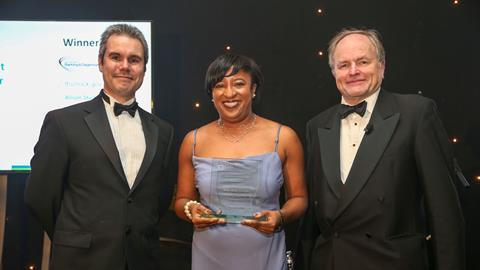Solicitor, Thurrock Council, London Borough of Barking and Dagenham
As part of a school project, we studied the judicial system and miscarriages of justice. I wanted to be an advocate for justice and equality. I organised work experience in a magistrates’ court and my career took off from there.
I worked in a high street practice and met clients and went to court at a really early stage. My first seat was in housing law, where you didn’t need to be qualified to represent defendants, so I was able to be at the forefront of the legal process and be shouted at by judges, which gave me strength of character.
The hardest set of challenges I have faced are shared services. Working and managing in three different authorities at the same time was very difficult. It was necessary because of the cuts, but having to get to grips with governance issues within three different structures and office locations, and each with clients where I had to gain their confidence and trust, was challenging.
Although I studied housing law many years ago, it has become useful to create a housing and regeneration team. This saved costs as my skills are varied and wide-ranging.
Winning the inaugural Individual Local Government Lawyer of the Year Award through Lawyers in Local Government (pictured) was
a highlight of my career. It was heartening to be recognised for the work that I had done on the Local Development Order. This project changed the landscape and increased job prospects in the borough.
Local government has lost 500,000 posts and many senior figures since 2010. This makes it harder to access wisdom from experienced colleagues. In local government, you can contact colleagues anywhere in the country and find someone who has encountered your issue before. The loss of experienced lawyers can impact on that.
The ability to trade services has been a gain for the legal profession. I’m given autonomy to develop trading opportunities with other local authorities. We also create income by closely monitoring where we can find external funding and contributions to our legal costs. This helps to retain jobs. Technology is now vital and has developed to meet specific legal needs.
I think local government lawyers benefit from a multidisciplinary approach and clients want this rather than several different lawyers around the table. I found that in our projects, where clients and lawyers work together, that shared multidisciplinary specialism is a service which local government does well.
I hope we can maintain a reputation for integrity, adding value and that we can continue to navigate minefields of increasing complexity despite austerity pressures.
































No comments yet